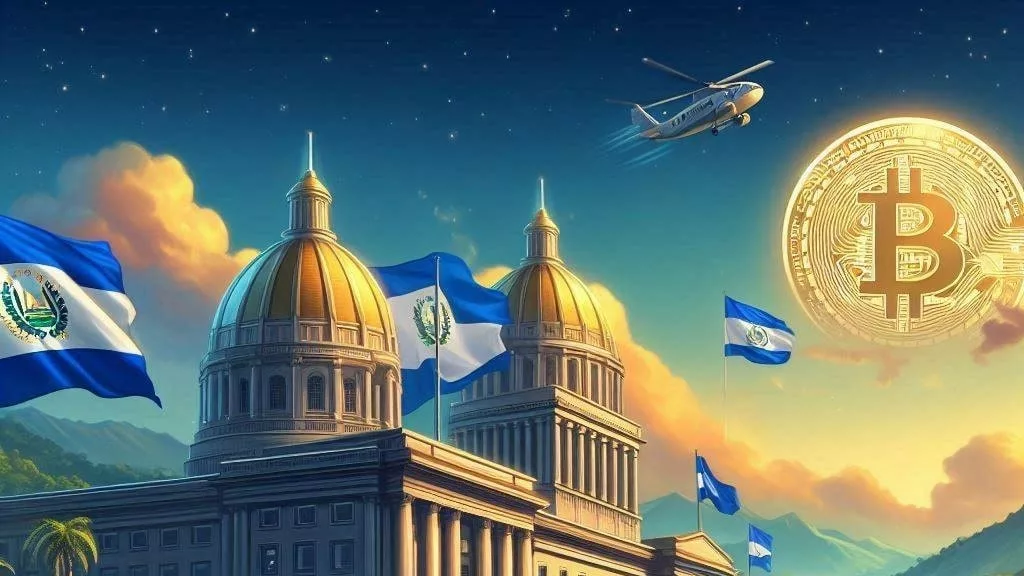
The International Monetary Fund (IMF) has reiterated its call for the country to reform its Bitcoin policies. During a press conference on October 3, 2024, Julie Kozack, director of the IMF’s communications department, emphasized the need for a robust regulatory framework that addresses the risks associated with cryptocurrency use. This comes as part of ongoing collaboration between IMF staff and Salvadoran officials aimed at developing a comprehensive program for economic stabilization and growth.
At the heart of the IMF’s recommendations is the recognition that the risks linked to Bitcoin need to be managed effectively. Kozack stated, “We advocate for narrowing the scope of the Bitcoin law, enhancing the regulatory framework, and improving oversight of the Bitcoin ecosystem.” This approach aims to ensure that the cryptocurrency does not pose excessive risks to the public sector or the broader economy.
The IMF’s insistence on limiting public sector exposure to Bitcoin is particularly crucial, as it reflects concerns about the currency’s notorious volatility. In a nation still grappling with economic instability, exposing public finances to such unpredictable assets could exacerbate existing vulnerabilities.
El Salvador made headlines in September 2021 when it became the first country to adopt Bitcoin as legal tender. While this bold move aimed to foster financial inclusion and attract foreign investment, it quickly drew skepticism from various financial experts and institutions, including the IMF. Shortly after the decision, the IMF cautioned the Salvadoran government against such a drastic step, warning of potential financial instability and a lack of consumer protections.
Kozack’s comments in October 2024 are a continuation of this critical stance. The IMF has noted that while some of the dire predictions regarding Bitcoin’s integration into the Salvadoran economy have not yet materialized, the underlying risks remain. The organization previously advised El Salvador to enhance transparency in its Bitcoin activities and implement strong risk management practices.
El Salvador’s economic landscape has been tumultuous in recent years. After the Bitcoin law was enacted, the country initially saw a surge of interest from crypto enthusiasts and investors. However, the reality has been mixed. Many Salvadorans remain skeptical of Bitcoin, and its volatility has led to significant fluctuations in the national economy.
Moreover, economic indicators suggest that El Salvador faces broader challenges, including rising inflation and unemployment rates. The IMF’s ongoing engagement highlights the urgency for the Salvadoran government to implement reforms that not only address Bitcoin policies but also strengthen the overall economic framework.
Amid these discussions, Kozack pointed to El Salvador’s proposed budget for 2025 as a positive step toward improving public finances. This budget plan includes measures aimed at strengthening fiscal discipline and addressing the economic issues plaguing the country. However, Kozack underscored that successful implementation of these measures is critical for their effectiveness.
The proposed budget could serve as a foundation for building a more resilient economy, but it also requires robust oversight and regulatory reforms to ensure that Bitcoin does not introduce additional risks. “We must work together to enhance the capacity of the government to manage public resources effectively,” Kozack stated.
El Salvador’s unique experiment with Bitcoin has drawn international attention, with other nations closely monitoring its outcomes. The IMF’s warnings serve not only as advice for El Salvador but also as a cautionary tale for other countries contemplating similar paths. As the world grapples with the growing influence of cryptocurrencies, the balance between innovation and economic stability remains a pressing concern.
Countries such as the United Arab Emirates and Qatar have been proactive in attracting cryptocurrency businesses by establishing clearer regulatory frameworks. In contrast, El Salvador’s current regulatory environment has been criticized for being ambiguous and insufficiently protective of consumers and investors. This discrepancy highlights the importance of creating a supportive atmosphere for innovation while safeguarding against potential financial instability.
The dialogue between the IMF and the Salvadoran government emphasizes the need for collaboration. Effective reforms will require not only changes to Bitcoin policies but also a broader commitment to improving transparency and accountability in public finances. By working together, the IMF and El Salvador can develop a framework that balances the benefits of cryptocurrency with the need for economic security.
Kozack’s remarks underscore the necessity of a comprehensive approach to economic challenges. “Together, we can create an environment that supports sustainable growth while minimizing risks,” she affirmed. This collaborative spirit could help pave the way for more innovative solutions in the financial sector, benefiting not only El Salvador but also serving as a model for other nations.
As El Salvador continues to navigate its complex relationship with Bitcoin, the IMF’s renewed calls for reform reflect a critical moment in the country’s economic trajectory. The emphasis on risk management, regulatory oversight, and transparency will be pivotal in determining whether El Salvador can harness the potential benefits of Bitcoin without jeopardizing its economic stability.
With the world watching closely, the outcomes of these discussions and proposed reforms could have far-reaching implications. El Salvador stands at a crossroads: it can either solidify its position as a leader in cryptocurrency innovation or face the repercussions of financial instability. The decisions made in the coming months will not only shape the future of Bitcoin in El Salvador but also influence the global conversation around cryptocurrency regulation and economic policy.

Get the latest Crypto & Blockchain News in your inbox.